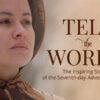10 November 1483 — 18 February 1546) was a German monk, Catholic priest, professor of theology and seminal figure of the 16th-century movement in Christianity known
later as the Protestant Reformation. He strongly disputed the claim that freedom from God’s punishment for sin could be purchased with monetary values. He confronted indulgence salesman Johann Tetzel, a Dominican friar, with his Ninety-Five Theses in 1517. His refusal to retract all of his writings at the demand of Pope Leo X in 1520 and the Holy Roman Emperor Charles V at the Diet of Worms in 1521 resulted in his ex-communication by the Pope and condemnation as an outlaw by the Emperor.
Luther taught that salvation and subsequently eternity in heaven is not earned by good deeds but is received only as a free gift of God’s grace through faith in Jesus Christ as redeemer from sin and subsequently eternity in Hell. His theology challenged the authority of the Pope of the Roman Catholic Church by teaching that the Bible is the only source of divinely revealed knowledge from God and opposed sacerdotalism by considering all baptized Christians to be a holy priesthood. Those who identify with these, and all of Luther’s wider teachings, are called Lutherans even though Luther insisted on Christian as the only acceptable name for individuals who professed Christ.
His translation of the Bible into the vernacular (instead of Latin) made it more accessible, which had a tremendous impact on the church and on German culture. It fostered the development of a standard version of the German language, added several principles to the art of translation, and influenced the writing of an English translation, the Tyndale Bible. His hymns influenced the development of singing in churches.[6] His marriage to Katharina von Bora set a model for the practice of clerical marriage, allowing Protestant priests to marry.
In two of his later works, Luther expressed antagonistic views toward Jews, writing that Jewish synagogues and homes should be destroyed, their money confiscated, and liberty curtailed. These statements and their influence on anti-Semitism have contributed to his controversial status.[8] Martin Luther died in 1546, still convinced of his Reformation theology, and with his decree of ex-communication by Pope Leo X still effective. On his deathbed, Luther was asked, ‘Are you ready to die trusting in your Lord Jesus Christ and to confess the doctrine which you have taught in his name?’. He answered, ‘Yes’ before taking his final breath.
















